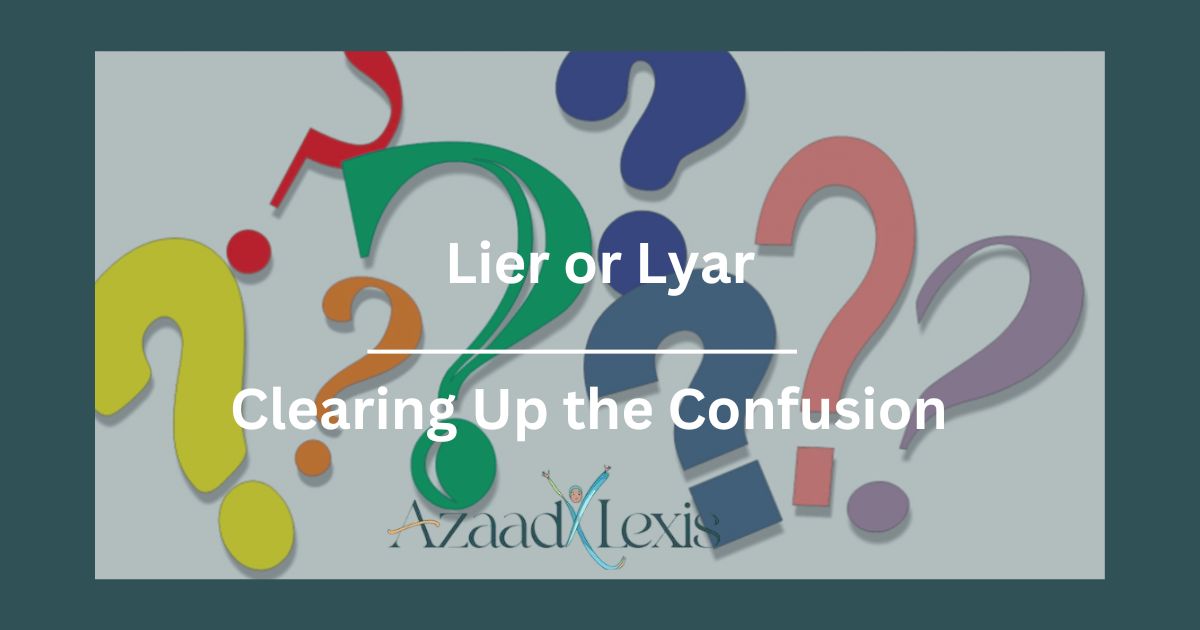English, as one of the most widely spoken languages globally, often presents confusion with its many nuances and homophones. A perfect example of such confusion arises from the words “lier” and “lyar.”
Many individuals struggle with which term is correct, and in some instances, the two may even seem interchangeable. But is there truly an equivalent meaning between them, or is there a critical distinction worth noting?
In this article, we will explore the meanings of both words, the origins behind the confusion, and clear up the language mishmash.
The Case of the Liar
Let’s start by focusing on the more familiar term liar. This word is widely recognized and refers to someone who knowingly and intentionally tells falsehoods. When you say someone is a liar, you’re essentially calling them out for their dishonesty, indicating that they are prone to deception. For example, if a friend consistently tells stories that are later proven untrue, you might label them as a liar.
Origins of “Liar”
The word “liar” comes from the Old English word lyge (meaning “falsehood”) and the verb lygan (meaning “to lie”). This root also relates to the Latin word mendacium, which means “falsehood” or “lie.” The word has evolved over centuries but has maintained the core idea of deliberate deception.
In addition, the term “liar” appears in various idiomatic expressions such as “a barefaced liar” or “caught in a lie,” further emphasizing its established place in the English lexicon.
What About “Lier”?
At first glance, lier may appear to be a misspelling of “liar,” but in fact, it has a distinct meaning. While “liar” refers to someone who tells lies, “lier” is a legitimate English word that has a different function entirely. The term “lier” is a noun, and it refers to someone who lies down, or in other words, someone who is reclining or lying flat on their back.
Origins of “Lier”
The term “lier” is rooted in the Old French word lier, meaning “to lie down.” It is derived from the Latin jacere (to lie, to recline). The word was historically used to describe someone or something in a reclining position. However, over time, the word has fallen out of common usage, and most people now prefer the verb “lie” itself when referring to a reclining posture.
Interestingly, the usage of “lier” in this context has become quite rare in modern English. One of the most notable historical usages appears in Shakespeare’s Hamlet, where it was used about a person who is in a horizontal position. However, the word no longer enjoys frequent use in contemporary language.
Read this Blog: Homogenous or Homogeneous: What’s the Difference?
The Most Common Confusion
Despite “lier” being a legitimate term with its own meaning, it is often confused with “liar” due to their similarity in spelling and pronunciation. The misunderstanding arises from the fact that both words sound identical, especially when spoken quickly or in informal contexts. However, it is important to note that context determines which word is appropriate to use.
- Liar is used to describe someone who tells untruths.
- Lier refers to someone or something in a state of lying down.
Key Differences Between “Liar” and “Lier”
- Meaning
- Liar refers to a person who tells lies, engages in deception, or fabricates stories.
- Lier refers to a person who is lying down or reclining.
- Pronunciation
- Although both words are often pronounced the same, it’s helpful to note that “lier” may be a bit more drawn out or softer in certain accents or dialects.
- Usage
- Liar is used frequently in both everyday speech and written language.
- Lier, in contrast, is rarely used and has largely been replaced by the simpler verb “lie” when referring to reclining.
- Cultural Context
- Calling someone a liar carries a strong negative connotation, often implying dishonesty or moral failings.
- Referring to someone as a lier typically carries no negative connotation but merely describes a physical position.
Why the Confusion?
The confusion surrounding “lier” and “liar” stems primarily from the evolution of language and the changes in word usage over time. As English speakers began to favor simpler constructions like “lie down” over “lier,” the term “lier” became more obsolete. The prevalence of “liar” in daily language, both in casual conversation and in literary references, has led to an oversaturation of the term. Hence, when confronted with “lier,” some might mistakenly interpret it as a misspelling of “liar.”
Moreover, English is filled with similar-sounding words that have different meanings (known as homophones), making it easy to overlook subtle differences in spelling. A classic example is the confusion between “they’re,” “there,” and “their.” In this same way, “lier” and “liar” are susceptible to misinterpretation.
When to Use Which Word?
To clear up any lingering confusion, here are a few quick guidelines:
- Use “liar” when you are describing someone who tells falsehoods with the intent to deceive. Examples: “He is a liar” or “She was caught in a lie.”
- Use “lier” only when referring to a person who is lying down or reclining. While this term is rare today, you might encounter it in older texts or historical contexts. Example: “The patient was a lier on the hospital bed.”
Conclusion
Understanding the difference between “lier” and “liar” can prevent unnecessary confusion, especially for those who may be unsure which word to use. While “liar” remains a cornerstone of the language, identifying someone who intentionally deceives, “lier” is a much rarer term describing someone in a reclined position.
Though English can be confusing, with a little attention to detail, you can master the usage of these terms and ensure clarity in your communication. Whether you’re calling out dishonesty or simply describing a posture, knowing the right word to use can make all the difference in effective communication.

